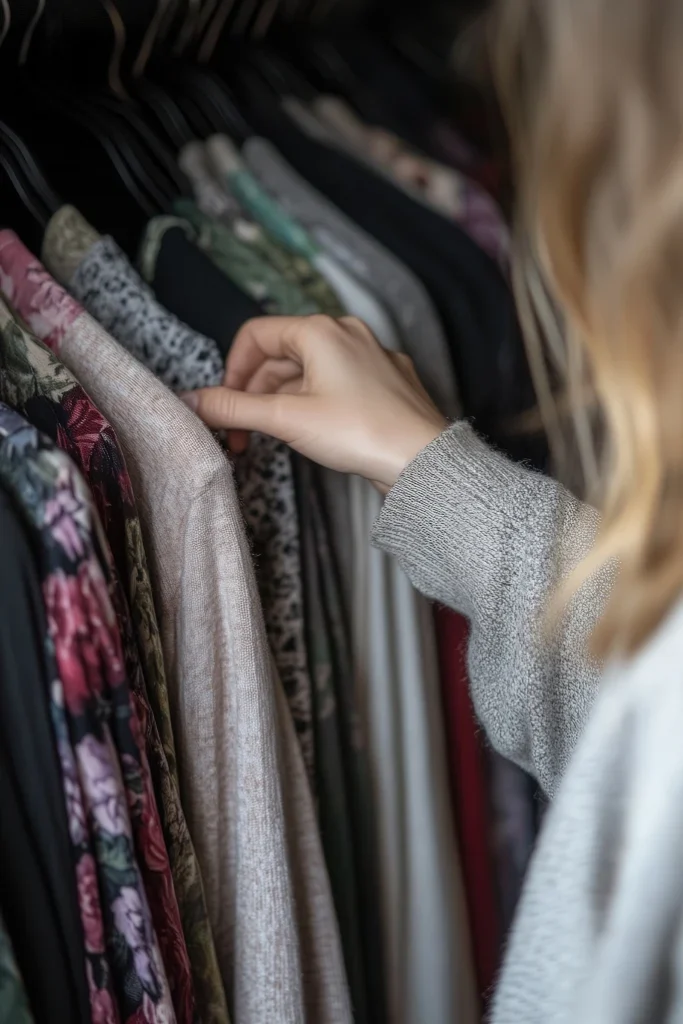Growing up in the Balkans with a single mum and a working-class background, we had what we needed but never much to spare — and no talk of saving or investing. My mum often worked two jobs to support my sister and me, often in debt, and I quickly absorbed the belief that money is difficult to earn and even harder to keep. That early conditioning shaped my approach to money well into my 20s.
Back then, there was no real financial education in my circle. No one spoke about budgeting, interest rates, or long-term planning. I started working soon after high school, and while I was able to spend on myself and help with bills, the idea of financial independence felt far out of reach. Salaries barely covered rent, saving seemed a challenge, and investing was taboo for many. In the Balkans, many young adults live with their families longer since moving out isn’t financially viable.
It wasn’t until my 30s — after years of working, moving to another country, and doing inner work around my beliefs — that I truly began to understand how to save, spend, and invest with intention.
The Money Beliefs I Grew Up With
Much of what we believe about money comes from our upbringing. In my home, we often heard phrases like “We can’t afford that,” or “Money doesn’t grow on trees.” They were said with reasonable caution, as a way to be realistic, but they planted deep-seated beliefs in my mind that money was always scarce, and wanting more was somehow greedy.
These beliefs shaped my behaviour. Witnessing a single parent navigating everything on their own, I learned strength and resilience, but I also internalised the idea that financial struggle was a part of life. I was spending as I earned, without planning or insight, avoiding debt and never felt fully comfortable with financial independence, even when I had the means. It took time to recognise how much those beliefs were holding me back, and how rewriting them could lead to more freedom and confidence.
Moving Abroad Shifted My Perspective
Things began to shift when I moved abroad. Living and working in the UK for a few years, I found myself finally earning enough to have a small surplus in my current account.
I wanted to learn more and meet people who thought differently about money, so I attended an event organised by the FIRE (Financial Independence, Retire Early) movement. People were talking about FTSE 100, index funds, LISAs, S&P 500, ETFs, terms I didn’t know the meaning of. I felt out of place—but motivated.
Determined to become financially literate, I went home and started researching, which is when I came across Female Invest. It’s a female-led educational platform designed to teach women about personal finance. Without much hesitation, I signed up for a yearly subscription. The platform offered short courses, live webinars, community support, and downloadable tools that helped me get clear on how to budget, save, and invest.
Learning to Budget and Track Spending
To get a better understanding of my finances, I started with the 50/30/20 budgeting rule:
- 50% of your income goes to needs (rent, bills, etc.)
- 30% to wants (travel, hobbies, entertainment)
- 20% to future you (savings and investments)
I began tracking spending manually using a spreadsheet from Female Invest, which helped me spot overspending. Then I switched to a bank with built-in budgeting tools and better interest rates, earning a £200 welcome bonus. Automating savings into high-interest accounts and building an emergency fund gave me peace of mind and helped me stay consistent without overthinking money.
Note: Always read the terms and conditions carefully before signing up — you might qualify for a welcome bonus.
I allocated 10% of my “wants” budget for travel and set up a standing order to my Revolut account. This made planning holidays easier and allowed me to spend in the required currency, saving 50e in exchange offices.
Automating Finances and Building Security
Once I had a budgeting system in place, I automated my savings into two separate bank accounts to take advantage of higher interest rates (often called high-yield accounts). I also built an emergency fund — an easy-access savings account with 3–6 months’ worth of living expenses — which gave me peace of mind and a greater sense of control.
This structure allowed me to stay consistent without constantly thinking about money. Whenever possible, automate your finances. There are many tools and banks offering competitive AER rates, so do your research and watch your money grow!
Facing Old Beliefs and Emotional Blocks
A big part of this journey wasn’t just learning financial skills—it was unlearning the emotional baggage I carried around money. I had this belief that nothing comes for free, and I often felt I owed something to people who did things for me. That showed up in relationships where I’d always split the bill or felt uncomfortable being treated (as raised by an independent “I can do all on my own” female figure).
As I became more aware of these patterns through my self-development work, I started allowing myself to receive without guilt. This included the men I dated — simply saying “thank you” instead of feeling indebted was a powerful shift. (More about feminine ways of communicating here)
I also realised that while I was proud of never being in debt, I hadn’t developed a habit of managing money actively. I knew how much was in my account, but not exactly where it was going. Creating an intentional relationship with money helped me stop seeing it as something stressful and more as a tool that can work for me. Being in control felt good. After all, it is our hard-earned money.

Making Financially Aligned Lifestyle Choices
One major benefit of financial awareness is clarity. Once I saw where my money was going, I made better lifestyle choices. I rarely followed trends, rather, decided on my own style and wore what felt good, so shopping second-hand through Vinted made sense. This sustainable fashion, aligned with my values and helped me save without compromising style.
I also got comfortable saying “no” to lending money to friends or family when it wasn’t aligning with my financial plan. It didn’t mean I cared less—it meant I was finally prioritising my own goals and well-being.
Changing My Money Mindset
My mindset around money has transformed. Living in a new country, being financially independent, and educating myself financially over the past two years taught me not just how to manage money, but how to feel empowered by it.
I no longer believe that money has to be a struggle. Instead, I believe in abundance, in intentionality, and in aligning my finances with my values. That includes allowing room for travel, paying for services that save me time, and releasing guilt around spending on things that matter to me.
“I prioritised investing in experiences that create memories, rather than materialistic things that sit around and collect dust.”
I used to carry a lot of old beliefs—like that investing is for wealthy people and usually Wall Street men. But now I know that knowledge is power, and by working on changing our relationship with it, we can step into financial confidence.
Advice for Other Women Starting Out
Before anything else, take time to define your values — what truly matters to you. For me, it’s time and travel, so I automate savings and spend less on trends. When you’re clear on your priorities, it’s easier to make financial decisions that align with the life you want to build.
If you’re just starting to manage your money more seriously, here’s what I’d say:
- Do your research. You know your situation best. Even if you eventually work with a financial adviser, having your own knowledge puts you in a position of power.
- Create an emergency fund before investing. It’s the safety net that helps you navigate life’s surprises without going into debt.
- Use budgeting methods like the 50/30/20 rule. Knowing where your money goes each month gives you control and freedom.
- Audit your spending. Are there any subscriptions you’re not using? Expenses you can cut back on?
- Sign up for platforms like Female Invest to build financial literacy. Having access to a supportive and educational space, like Female Invest, can keep you motivated and accountable.
- Start Investing – You can start small, even with £50 a month. Over time, your money can grow and work for you (average 10-year return is 10%).
Final Thoughts
Above all, remember: you deserve financial independence. The world of money might seem intimidating at first, but it’s not reserved for men in suits on Wall Street. It’s never too late — or too early — to start managing your money.
Don’t think you’ll need to master it. Start small, ask questions, and stay curious about how you can make your money work for you.
Financial independence isn’t just about numbers — it’s about confidence, peace of mind, and creating a life that feels aligned with your values.
Disclaimer: This post shares personal experience and is not financial advice. Financial information, tools, and services referenced may change over time. Always do your own research or seek independent advice before making financial decisions.




